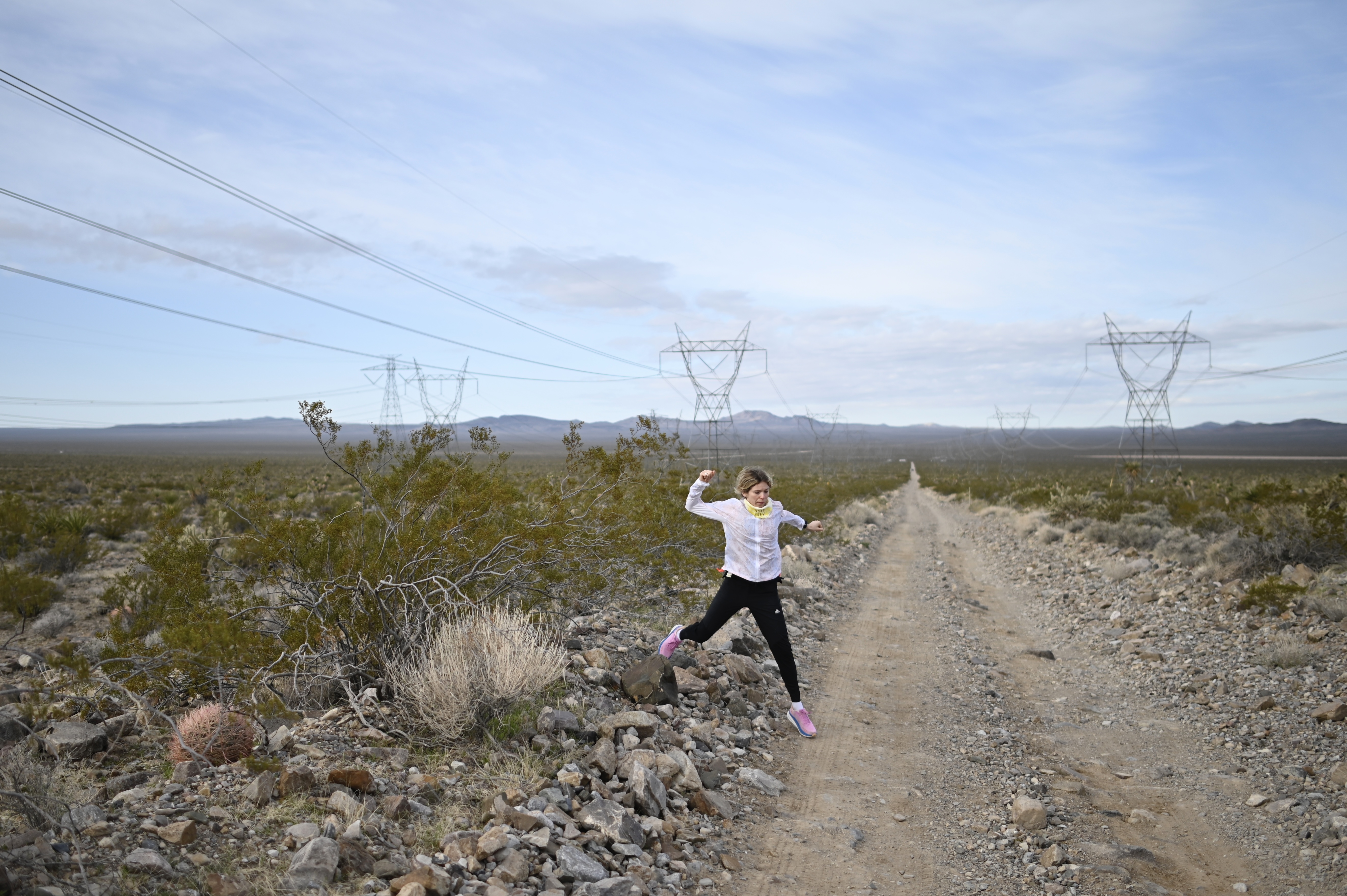Note: This article discusses eating disorders, a topic which some may find distressing. Support resources are linked at the bottom of the article.
What do you do when you get injured and you can’t run?
Well, that’s the journey I’ve been on these past two months. Following a flair up of hip bursitis and hamstring and glute tendinopathy late in my Berlin Marathon block, I’ve not been able to run in ~12 weeks. I had to drop out of Berlin and a bunch of other races, miss the start of the cross country season, and spend time away from running friends, churning through the hours on the elliptical instead.
Being injured as a runner is tough, not just physically but mentally and I wanted to share a bit about my running journey and how I’ve learnt to overcome obstacles like injury.
IN THE BEGINNING
I’ve always set the bar high when it comes to running. Aged 12 I got into cross country, mainly because my brother did it, and was relatively good at it. I quickly realised that I had some natural ability (thanks parents!), and started to do well at training sessions and races.
Not many girls were into running at school - it was definitely less popular then than it is now - and so I did stand out a bit. I think I enjoyed the success, which motivated me to continue and keep pushing myself, resulting in me representing Mid Essex Schools in XC.
From 12 to my early 20s gains came relatively easy, and I don’t recall getting injured. But as I’ve got older, the work I have to put in to continue to improve has got harder, and takes more of a toll on the body, which inevitably leads to niggles and sadly sometimes bigger injuries like this current one.
MY BIGGEST CHALLENGE
As we all know, life can sometimes throw a few curveballs in our way. I’ve briefly covered it in previous interviews, but my reality is that the eating disorder I developed in my late teens has been a significant contributing factor to my battle to stay fit. I haven’t spoken in depth about this on my social media, but I do feel like it’s an important part of my life and has inevitably changed who I am, for better or worse.
I was diagnosed with anorexia nervosa in my first year at university. While the diagnosis wasn’t directly connected to my running, and I wasn’t seeking performance improvements, by continuing to exercise while restricting food intake, I pushed my body so far that it went into survival mode and I inevitably broke. I had to stop running, stop all exercise really, to focus on recovery.
Thankfully, with a lot of support from family and friends (and dogs), I was able to get on the path to recovery relatively quickly, and rebuild a healthier relationship with food and exercise. As I began to recover and fuel my body properly, I returned to running and saw my performance improve significantly, which became a motivator to continue my recovery and centre properly fuelled running more in my life.
After a few years of relatively steady progress, my running took a big leap forward in 2020-2021. I ticked off a few key goals of going sub-20, sub-40 and sub-90, and started to win some local races. My recovery was still on track and I was injury free.
But life is rarely that simple! While my recovery has broadly stuck, I’ve not been immune to unconscious relapses. Moving into 2022, my mileage crept up, but my fuelling didn’t. I was still running without a coach at this point, and just saying yes to everything - social runs, races, sessions with friends - without paying close attention to the cumulative training load or fatigue. I was regularly doing 100km weeks, double days, even double thresholds and seeing incredible progress. I dropped my 5k below 18 minutes, ran a huge mile PB at the Tracksmith Amateur Mile and was generally feeling the fittest I’d ever felt.
But the reality was, I wasn’t eating enough for the amount I was exercising, nor was I doing any strength work to help protect myself from injury, and the progress wasn’t sustainable. This all culminated in the 2022 Hackney Half, which I ran, against my better judgement, with my shin and knee taped together for dear life. While a personal triumph on one level, it ended up being the last target race I ran for nearly a year, with those injuries getting the better of me, leading to a long recovery period and rebuild.
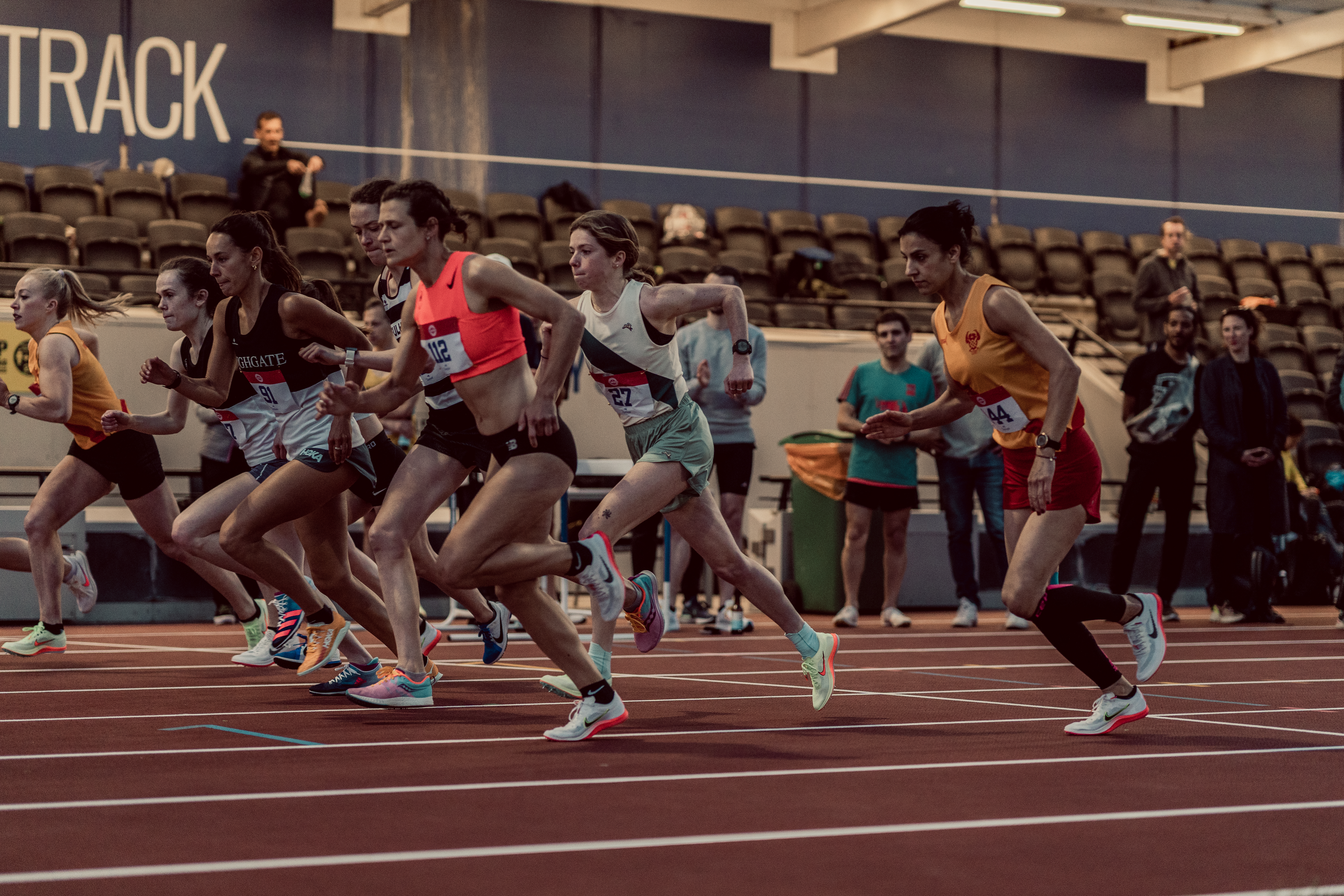
SOMETHING HAD TO CHANGE
While I wasn’t consciously restricting my food intake in 2022, if I’m honest, that period still had all the hallmarks of RED-S: weight loss, insomnia, low energy… and as a result, I ended up with a bone stress injury. I was doing too much work, without enough structure or thought, and without putting enough fuel into my system to keep it all going. The definition of unsustainable!
After visiting Joe at the Victoria Park Sports Medicine, who set me on the right path physically, I decided to get a coach to guide my return to running, and I lucked out with Steve from The Milestone Pursuit. With Steve, I’ve worked hard to build fitness post injury and do it more sustainably, factoring in things like my menstrual cycle along with a close focus on fuelling and recovery.
He took my mileage way back down initially. I learned to say no to runs and sessions that weren’t on the plan, but worked with Steve to incorporate enough social runs with clubs and crews into my plan to ensure I didn’t lose that aspect of running entirely.
Progress wasn’t totally linear, and I had a real battle to regain my confidence and self-belief, but sticking to the plan and hitting the numbers in sessions gave me a sense of progress even when I wasn’t racing.
This time around my performances did feel sustainable, and when I eventually got back on a start line, at the 2023 Valencia Marathon, I was lining up for the first time in as long as I could remember without an injury niggle (covid aside!), and the PB I came away with was all the sweeter for it.
For what it’s worth, that progress has continued through 2024, with a new PB in the 5k and top ten performances at Bath Half (which was as good as a PB given the massive hill at the end!) and the Big Half, which has really helped me accept that fuelling correctly is the best way to continue to improve as a runner.
All this progress made the injury right at the end of my Berlin block all the more upsetting. There’s little worse as a runner than thinking back to the horrific 34km long run with marathon paced efforts that you did that the peak of your block and feeling like it’s going to waste.
But, although I didn’t run Berlin, and I’ve barely run since, I’ve tried to reframe it all and focus on the positives:
Getting a coach has been one of the best decisions I’ve made, and has without doubt pushed my running onto the next level. No matter your ability, having someone help you with your running can be extremely valuable. It provides accountability, structure, guidance and knowledge, as well as someone other than your partner or friend for you to bore talking about your running, especially when you're injured!
Taking the time to educate myself around nutrition and fuel properly has helped me train sustainably. I’m sure I’m not alone in finding it a constant struggle to strike the balance when the training intensifies. The mentality that lighter you are the faster you can be is still prevalent, so it’s great to see improvements in this area with the growing awareness of RED-S amongst runners, coaches and physios, and pioneering athletes like Jake Smith and Philly Bowden really shining a light on these issues.
Find yourself a great running-specific physio and put a plan in place. As we all know, it’s hard to fit everything into our busy lives, and the first thing to go is always the gym. I’ve used this current period of injury to focus on strength work, finding joy in something I never thought I would, and getting some new ‘pb’ highs from lifting weights. Working with Luke from The Running Room has helped me massively.
Sometimes injuries just happen and you just have to accept it - there’s more to life than running (they say)! There’s a big positive in that the hip bursitis is not related to underfuelling or to RED-S. It could happen to anyone, even if you’re doing everything right. Having positive goals outside of running through my work and personal life has got me through this period, and I think maintaining those goals outside of running will help bring balance once I’m back up to full running volume.
While not running for this long has been a challenge, especially as “running” is now my job, I’ve become stronger for it and set my goals higher for when I do return to running.
WHAT’S NEXT
I’ve just started run/walking, training my dog to run with me. I set myself the small target, to keep up tradition, and drag my family out at 9am on Christmas Day to watch me run Parkrun. Although I had to walk/run, it felt great to be in amongst the 950 strong crowd at Chelmsford Parkrun.
I’d love to run the London Marathon next year, but at this rate I think I’ll need a second race to target. After narrowly missing out with Berlin last year I’d love to give it a crack in 2025. It’s the perfect race to go for a big PB. I need to hold myself accountable and keep up the strength work. I’ve got even bigger goals for the future, but I’ll keep those to myself for now.
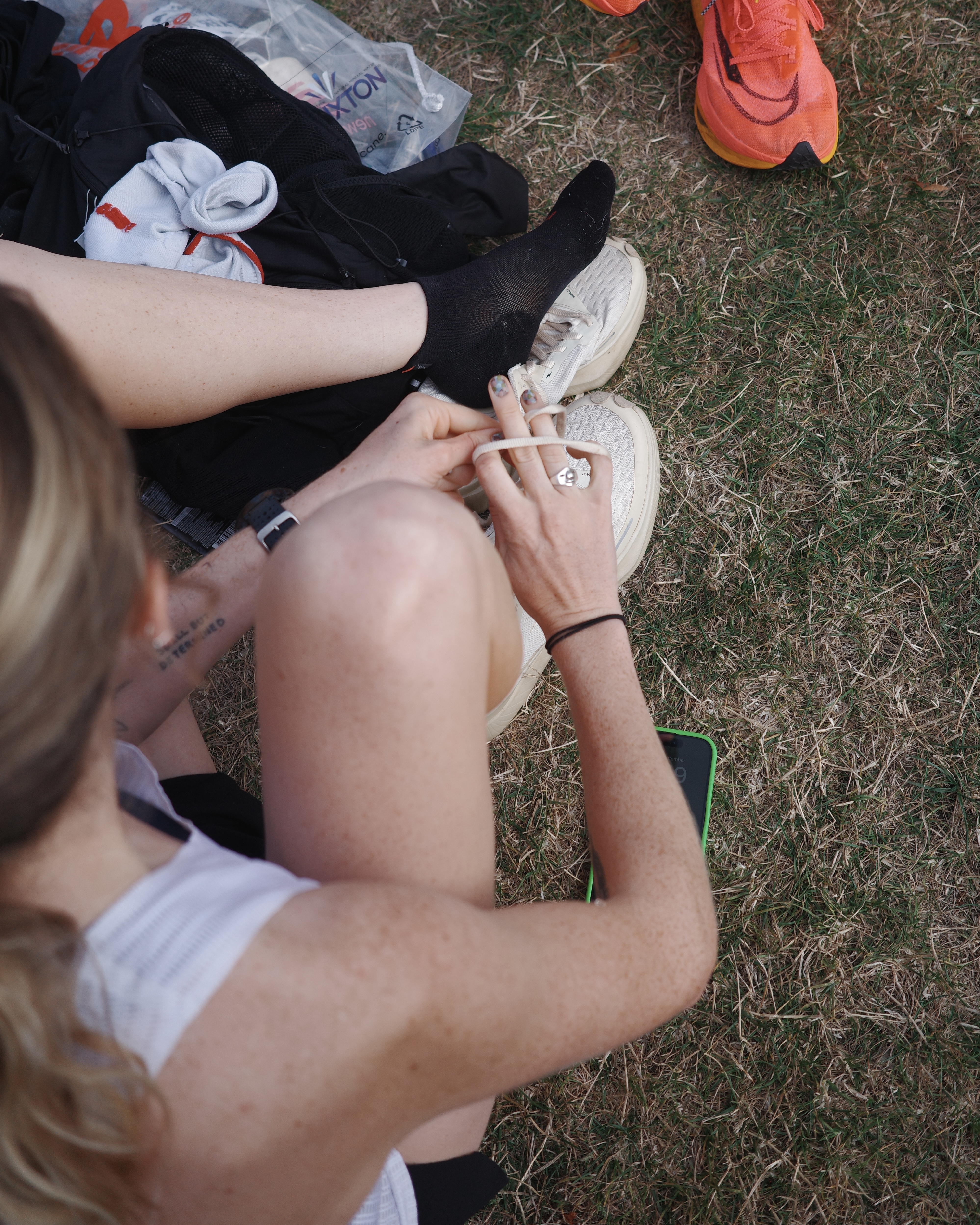
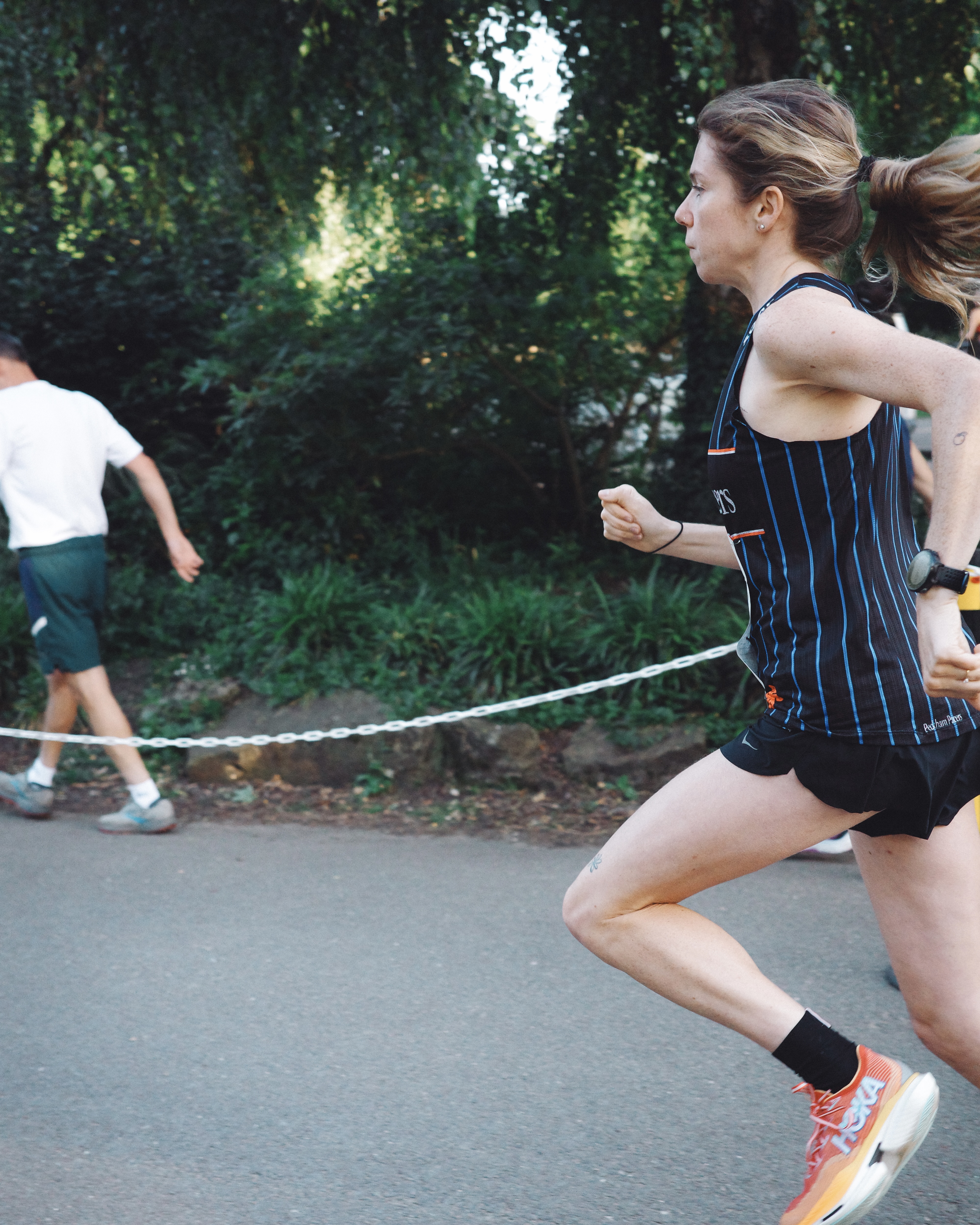
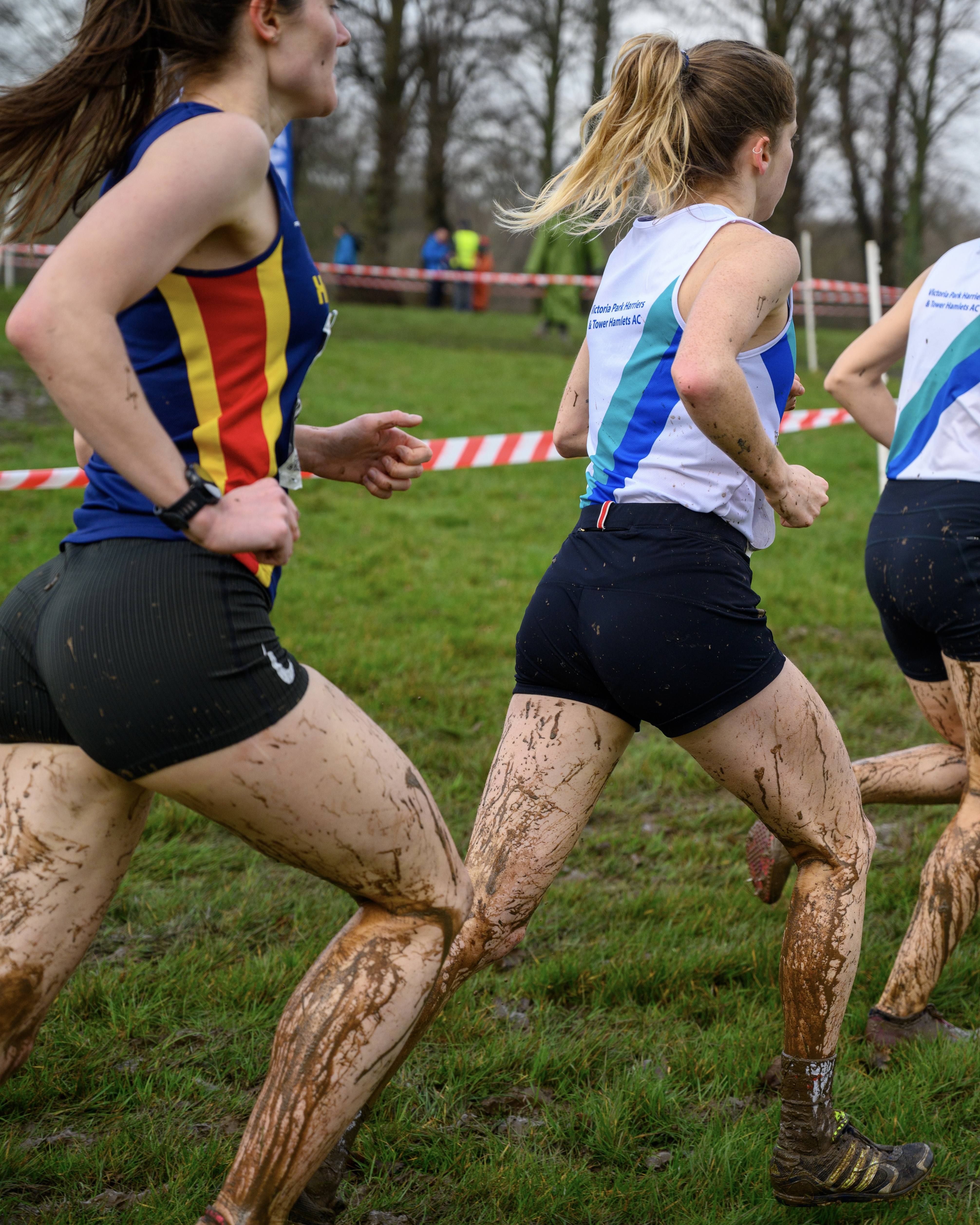
If you or anyone you know are struggling with your eating or RED-S and want to talk to someone, there are some incredible support systems and resources available.
